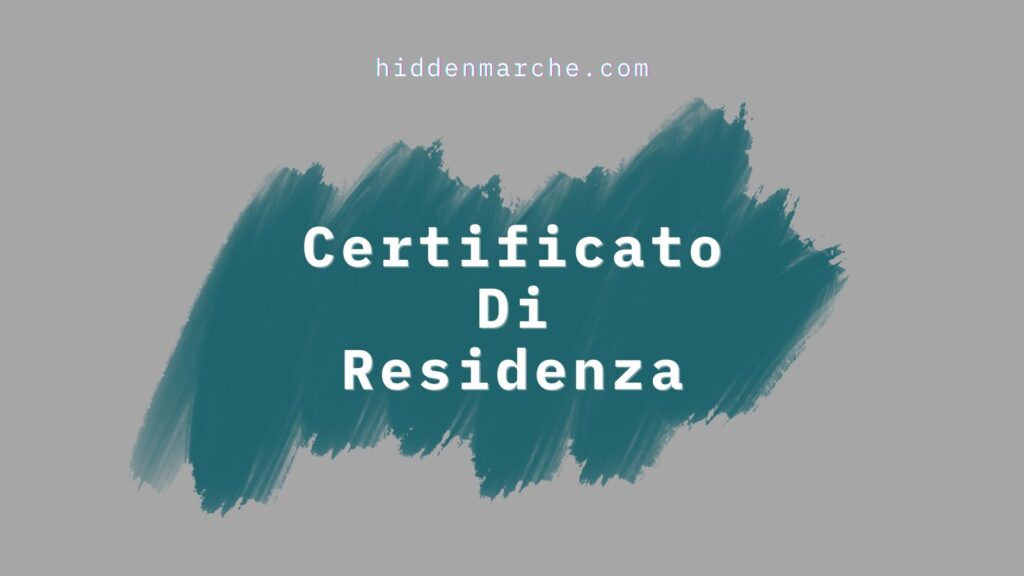
For anyone living in Italy, the Certificato di Residenza (certificate of residence) is one of the most important documents that you will need. It proves your official address in an Italian municipality (comune) and is often required for everyday practicalities like opening a bank account, registering for healthcare, or even signing a rental contract.
In this guide, we’ll explain what the certificate is, why it matters, and how both residents and foreign nationals can request it.
👉 Explore: Italian Bureaucracy and Everyday Life: A Guide for Foreigners
Table of Contents
- What Is the Certificato di Residenza?
- Why You Need It
- How to Request the Certificato di Residenza
- Costs
- Conclusion
What Is the Certificato di Residenza?
The Certificato di Residenza is an official document issued by the Anagrafe, the registry office of your local town hall (comune). It certifies your registered address and confirms that you live in that municipality.
Foreigners who move to Italy (for work, study, retirement, or to buy property) are usually required to register their residence if they plan to stay more than 90 days.
Why You Need It
This certificate is often necessary for:
- Opening a bank account in Italy.
- Enrolling in the National healthcare system (via the Tessera Sanitaria).
- Applying for utilities and registering contracts.
- Registering a vehicle and paying related taxes (such as the Bollo auto).
- Proving your address for tax or legal purposes.
Without it, many practical steps of daily life in Italy can become difficult.
How to Request the Certificato di Residenza
Step 1 — Prepare the documents
You will usually need:
- A valid passport or ID card.
- Your codice fiscale (Italian tax code).
- Proof of residence, such as a rental contract or property deed.
If you are renting, the contract should be officially registered by your landlord at the Agenzia delle Entrate. See more on how to register a rental contract below.
Step 2 — Go to your comune’s Anagrafe office
Applications are made in person at your local municipio. Some larger cities now allow online pre-requests via SPID or CIE credentials.
Step 3 — Home inspection (sometimes)
The local police (vigili urbani) may visit your declared address to verify that you actually live there.
Step 4 — Collect the certificate
Once approved, you can collect your certificate, usually within a few days or weeks, depending on the municipality.
If you’re renting in Italy, your landlord is legally required to register the rental agreement with the Agenzia delle Entrate. This is crucial because an unregistered rental contract may invalidate your residency request.
Costs
In most cases, the certificate itself has a small administrative fee (a few euros). Additional marca da bollo (revenue stamps) may also be required, especially if you need multiple copies.
Conclusion
The Certificato di Residenza is the key that unlocks access to healthcare, banking, utilities, and other vital services in Italy. Make sure your rental contract is registered, prepare your documents carefully, and your request should be straightforward.
